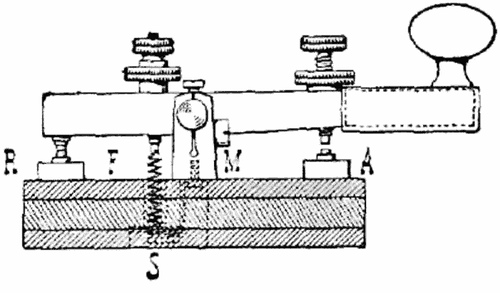infandous
adj. too horrible to mention
Language
In a Word
preantepenultimate
adj. fourth from last
In a Word
breedbate
n. one who seeks an argument
That Oughta Do It

SWIMMING POOL SUGGESTIONS
Open 24 hours. Lifeguard on duty 8AM to 8PM.
Drowning absolutely prohibited.
— Sign, Plantation Bay Resort, Philippines
STOP

From Charles Bombaugh, Facts and Fancies for the Curious From the Harvest-Fields of Literature, 1905:
The following sentence won a prize offered in England for the longest twelve-word telegram:
ADMINISTRATOR-GENERAL’S COUNTER-REVOLUTIONARY INTERCOMMUNICATIONS UNCIRCUMSTANTIATED. QUARTERMASTER-GENERAL’S DISPROPORTIONABLENESS CHARACTERISTICALLY CONTRA-DISTINGUISHED UNCONSTITUTIONALIST’S INCOMPREHENSIBILITIES.
It is said that the telegraph authorities accepted it as a dispatch of twelve words.
Triple Word Score
Rupert Hughes’ 1954 Music Lovers’ Encyclopedia contains what might be the most outlandish English word ever seen: ZZXJOANW. Hughes claimed it was of Maori origin, pronounced “shaw” and meaning “drum,” “fife,” or “conclusion.”
Logologists accepted this for 70 years before it was exposed as a hoax. Who can blame them? The English language contains about 500,000 legitimate words, including monstrosities like MLECHCHHA and QARAQALPAQ. Better luck next time.
In a Word
boanthropy
n. the delusion that one is an ox
The Void
In 1969, French author Georges Perec wrote a 300-page novel without the letter e:
Noon rings out. A wasp, making an ominous sound, a sound akin to a klaxon or a tocsin, flits about. Augustus, who has had a bad night, sits up blinking and purblind. Oh what was that word (is his thought) that ran through my brain all night, that idiotic word that, hard as I’d try to pin it down, was always just an inch or two out of my grasp — fowl or foul or Vow or Voyal? — a word which, by association, brought into play an incongruous mass and magma of nouns, idioms, slogans and sayings, a confusing, amorphous outpouring which I sought in vain to control or turn off but which wound around my mind a whirlwind of a cord, a whiplash of a cord, a cord that would split again and again, would knit again and again, of words without communication or any possibility of combination, words without pronunciation, signification or transcription but out of which, notwithstanding, was brought forth a flux, a continuous, compact and lucid flow: an intuition, a vacillating frisson of illumination as if caught in a flash of lightning or in a mist abruptly rising to unshroud an obvious sign — but a sign, alas, that would last an instant only to vanish for good.
Remarkably, La Disparition has been translated into six different languages, each imposing a similar constraint — the Spanish, for instance, contains no a, and the English, here, no e.
In a Word
vivisepulture
n. burial alive
Tower of Babble
In 1996 recreational linguist Ross Eckler composed the following “transdeletion pyramid”:
A N T I C E R E M O N I A L I S T
N O N M A T E R I A L I T I E S
O R N A M E N T A L I T I E S
I N T E R L A M I N A T E S
M A T E R N A L I T I E S
M A T R I L I N E A T E
T R I L A M I N A T E
T E R M I N A L I A
L A T I M E R I A
M A T E R I A L
T A L I E R A
R E T A I L
A L T E R
R A T E
T E A
A T
A
Each word is derived from the one above, dropping one letter and scrambling the rest.
